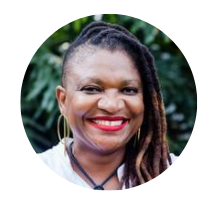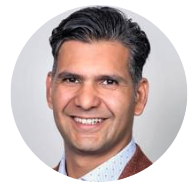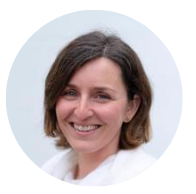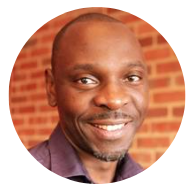This webinar drew with frank discussions
Moderated by Alejandro Álvarez von Gustedt, Vice President in Europe of Rockefeller Philanthropy Advisors, the speakers included:
- Masego Madzwamuse – Director of Environment Programme, Oak Foundation
- Fabio Segura – Co-CEO, Jacobs Foundation
- Simeon Mawanza – Programme Manager – Africa, Porticus
- Marta Arranz – Founder, Learning Edge
A few highlights from the event
 Masego said: In order to drive systems change, we need to be looking at investing in people power; building people power to drive transformation. And part of that project of building people power is to look at what it means to build people power in a deep and meaningful way, and in a way that actually challenges the power imbalances which have been associated with our history, as humanity, as well as the power imbalances that have landed us in the polycrisis that we are finding ourselves in. And the way that we have landed at appreciating the role of people power is very much anchored on the history of the work of the Oak Foundation.
Masego said: In order to drive systems change, we need to be looking at investing in people power; building people power to drive transformation. And part of that project of building people power is to look at what it means to build people power in a deep and meaningful way, and in a way that actually challenges the power imbalances which have been associated with our history, as humanity, as well as the power imbalances that have landed us in the polycrisis that we are finding ourselves in. And the way that we have landed at appreciating the role of people power is very much anchored on the history of the work of the Oak Foundation.
The inspiration for that work comes from the work our trustees had invested in our earlier grant making which was taking place in Belize – around the marine conservation work. And we realised that to deliver marine conservation, we can’t so that operating within the environmental sphere, and only working with environmental organisations that are looking at the biodiversity aspect. What we needed to do was to be supporting small scale fisher communities, who are living in the coastal areas, and whose food systems are directly dependent on robust fishery resources. So, in other words, they’ve got skin in the game.
 Fabio: One of the examples that comes to mind is the learning crisis that was made evident after the pandemic and the school closures. One of the things we noticed in all countries we’re working with was that, no matter what the income level, countries were investing in education technologies. And very often these educational technologies did not respond to their needs, because they were not being developed in the Global South, on one hand, but also they were not tested for efficacy.
Fabio: One of the examples that comes to mind is the learning crisis that was made evident after the pandemic and the school closures. One of the things we noticed in all countries we’re working with was that, no matter what the income level, countries were investing in education technologies. And very often these educational technologies did not respond to their needs, because they were not being developed in the Global South, on one hand, but also they were not tested for efficacy.
So, less than 5 per cent of of all investments made in educational technologies, globally, to date, some two billion or something, have been tested for efficacy. So, in other words, they do not have the means to deliver on their promise. And so our first, guttural approach to that was – he’s create some technologies that are basing their products and services on solid evidence.
Simeon: Our journey also starts with the realisation of people power, and how transformative it can be in terms of changing systems. So to start our journey at Porticus, we set what we called ourself our “daring goal”, to be achieved by 2030, to really set the standard and the bar for that. And this “daring goal” was to ensure the meaningful participation of people affected by poverty and exclusion in our grants and our programmes, and that they also inform, or redevelop our strategies, and inform our approaches as a foundation.
So it has been a lot of looking inside, looking at our past practices, and looking at the practices of other foundations, and to say – how do we harness this resource to drive system change?
 Marta: Through the evaluation we’ve looked at how different foundations – how the philanthropic sector is really understanding systems change, and how it is influencing what philanthropic founders invest in, but also how they do it. We’ve found that right now there is almost such a proliferation of approaches and understanding of systems change work, that we could say that it’s a field that is still in the making.
Marta: Through the evaluation we’ve looked at how different foundations – how the philanthropic sector is really understanding systems change, and how it is influencing what philanthropic founders invest in, but also how they do it. We’ve found that right now there is almost such a proliferation of approaches and understanding of systems change work, that we could say that it’s a field that is still in the making.
There’s also high tolerance for different approaches, but also lots of interconnection with other trends in philanthropy, like trust based philanthropy, or decolonising philanthropy. So systems change work is then with in other conversations and other reflection opportunities around philanthropic funding. And through these we’ve found, we’ve basically categorised the different communities we have found, or the different approaches we have found.
You can watch the full video here:
Eleanor Margolis is a freelance journalist
Credit:Source link





